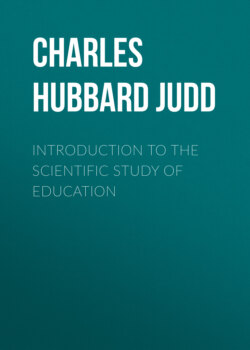Читать книгу Introduction to the scientific study of education - Charles Hubbard Judd - Страница 19
На сайте Литреса книга снята с продажи.
Independence of Thought based on Reading
ОглавлениеTable of Contents
The contrast here pointed out is one of fundamental importance. It can be adequately understood by a study of the history of American schools. When the colonists came to New England they were bent on securing for every individual independent personal contact with the truth. They had left their European homes because there dominating authority always stood between the individual and the sources of truth. One of the first acts of the colonists, therefore, was to provide for the training of every boy and girl in that power which would make him or her independent, especially in religion. The early legislation shows unequivocally this motive. Thus in 1650 Connecticut passed a law which had a preamble very much like that of the Massachusetts law of 1647. The preamble is as follows:
It being one chief project of that old deluder, Satan, to keep men from a knowledge of the Scriptures, as in former times, keeping them in an unknown tongue, so in these latter times, by persuading them from the use of tongues, so that at least, the true sense and meaning of the original might be clouded by false glosses of saint-seeming deceivers; and that learning may not be buried in the grave of our forefathers [the court decreed that whenever a township increased to fifty householders they should employ someone] to teach all such children as shall resort to him, to write and read.
So strictly did the early schools devote themselves to reading that arithmetic and, in some cases, even writing were neglected in the exclusive cultivation of the one art of reading. Later generations of American teachers and pupils have experienced a great expansion of the content of the course of study, but the method of instruction has always been predominantly the reading method. The large number of supplementary readers used in history, in geography, and in nature study keep up the traditions of a school which was from the first a reading school.
The social consequences of this emphasis on reading can be seen in the fact that public opinion in America is controlled largely by an appeal to the people through reading matter. The importance of this kind of public opinion can hardly be overemphasized. In a democracy there must be ability to form independent opinions, and this is possible only where there is the widest training in reading.
